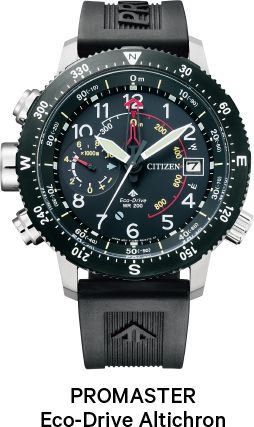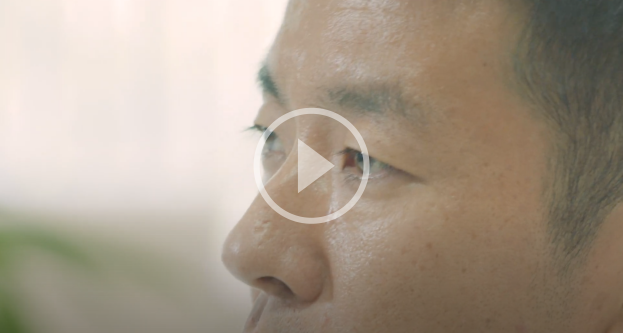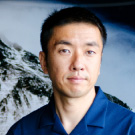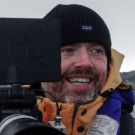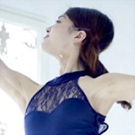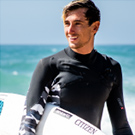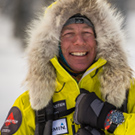
-
How have you been spending your time under lockdown?
-
I've loved reading since childhood. Reading really made me the person I am. Still, you need time to read properly, and recently I've not had the time to spend alone with a good book. Over the last few months, though, we've all had plenty of time on our hands, meaning that I've got more time for reading. I feel I've recaptured some of my old, original self.
For example, I recently reread the children's book Two Years' Vacation [a Jules Verne novel about a group of schoolboys stranded on a desert island]. I hadn't read it since I was a child and it made a completely different impression on me this time around. 'Wow, these kids have got pretty high-level survival skills,' I thought. It actually felt much more real to me because of the experiences I've had over the intervening years.
Reading a good book is like going on a journey. You're immersed in the story and you make a journey in your imagination. It doesn't matter that it's lockdown and you can't actually go anywhere—books can make you feel like you've been anywhere. Reading has enabled me to find new themes and ideas for future expeditions. -
Has the 'new normal' changed how you think about things?
-
I think I've become more relaxed about how I spend my time.
I never used to look at my neighborhood or my own house with much attention. When you start doing so, you can make all sorts of interesting discoveries. Like today, I was sitting at my desk when I looked out the window and saw this enormous great cumulonimbus. I instinctively took a picture of it. These may be small things, but every day has a new surprise, a new discovery. Before, I'd never really paid much attention to what I could see from my place, but lately I've been taking photographs of the local scenery.
I've also started working on things I was too busy to do before. Right now, that means photography picture books. The flipside of not being able to go abroad is that I've had the opportunity to read lots of picture books quite carefully—something that's changed my own approach to making picture books. What I've realised is that for a child who reads a book and gets immersed in its world, reading for them is an actual journey into a new world, almost a real experience. The educational value of reading is neither here nor there.
When you read a picture book to a child, the child is transported into that world and has a totally new and real experience, in his mind at least. Realising that led to a small change in how I think about making my own picture books.
Small insights like that are going to be my harvest from this year. -
With foreign travel restricted, what constitutes an 'adventure' for you now?
-
A true adventurer has a sixth sense for finding unknown places. Nowadays, though, there just aren't many more blank spaces on the map. You can't have old-style adventures that involve setting out for the North Pole or the summit of Everest with little advance knowledge and no proper support anymore. The experience is no longer available.
But if you're prepared to go up a mountain alone and without all the latest gear, the scenery will look quite different to you. As soon as you impose limitations and challenges on yourself, you start to notice all sorts of things you didn't notice before. The unknown is all around us every day. For me, the modern-day adventurers and explorers are the people who with a gift for discovering it.
Objectively, there's just one world, but there are actually as many different versions of the world as there are people living in it. The world I see and the world a child of five sees—they're two quite different things. Just think of the wall paintings of Lascaux or Altamira. It wasn't archeologists who discovered them, it was children. That just proves that the world adults see and the world children see are two quite different things.
If we define an adventure as finding something completely new in a familiar place, then anyone can be an adventurer or explorer, lockdown or not. -
What do you do to stay positive on a daily basis?
-
When it's too hot, people cool down by switching on the air-conditioner. Then they switch on the heater if they get cold. People are always trying to control their environment to make it fit their own convenience. But the places I've been to on my travels are places where you simply can't modify your environment like that. You have no choice; you have to change yourself instead. The secret for getting through—even enjoying—harsh circumstances is to stay adaptable and take things day by day. The more adaptable you are, the greater freedom of movement you have.
-
What does 'Better Starts Now' mean for you?
-
I don't have any negative sense that the pandemic forced me to cut short or stop anything I was doing. I think that's because I've been able to make new discoveries and find new themes and new ideas which hadn't occurred to me before.
Recently, for example, I've started photographing the rats in Shibuya. Shibuya is a place I've been going to since I was a teenager, but the number of people there plummeted during lockdown and you suddenly started seeing a lot more rats. When I saw the way wildlife was coming into its own there, I was surprised. I felt I was encountering a new Shibuya I hadn't known about before. There are new discoveries like that every day, even in the small changes in the scenery I see outside my window.
I know I'm repeating myself, but even in the circumstances we're in today, the unknown and unfamiliar is all around us, and the people who can discover it, they're the adventurers and explorers of modern times. To accept the way things are, and, in your own way, to try and find something new, I think that's what 'Better Starts Now' means for me.
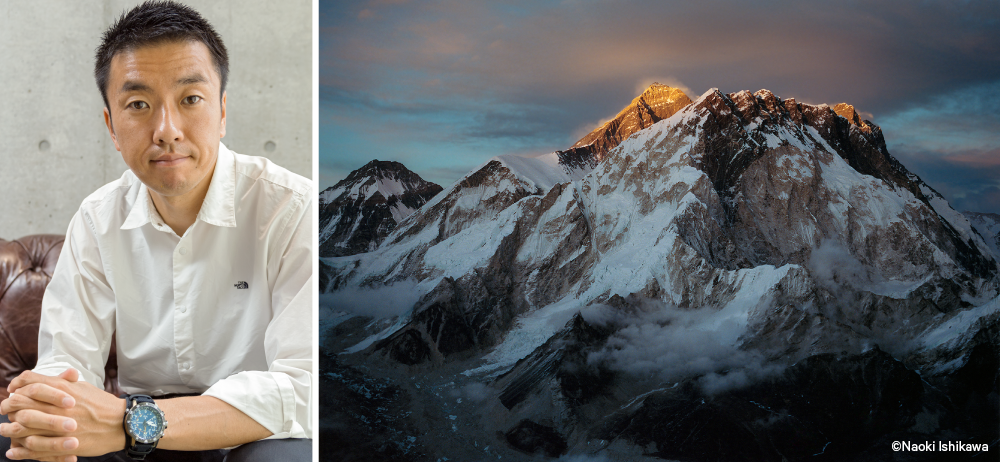
Profile of Ishikawa Naoki
- Born Tokyo, 1977. Photographer and author. Has a Ph.D. from Tokyo University of the Arts. Inspired by an interest in anthropology and ethnology, has travelled widely to both urban and remote environments and published a series of works on his travels. These include: NEW DIMENSION (Aka Aka Art Publishing, 2008) and POLAR (Little More, 2007) for which he won the Newcomer Award from the Photographic Society of Japan and the Kodansha Publication Culture Award for Photography. With CORONA (Seidosha, 2010), he won the Domon Ken Award in 2011. In 2020, he published EVEREST (CCC Media House) and MAREBITO (Shogakukan) for which he won the Lifetime Achievement Award from the Photographic Society of Japan. He has produced numerous books including Saigo no Bokenka/The Last Adventurer (Shueisha) which won the Kaiko Takeshi [Non-Fiction] Award. His large-scale solo exhibition Capturing the Map of Light on This Planet, which opened at the Art Tower Mito in 2016, went on to the Niigata City Art Museum, the Ichihara Lakeside Museum, the Kochi Museum of Art, the Kitakyushu City Museum and Tokyo Opera City, and a photography book of the same name was published. In 2020, he published Alasuka de Ichiban Takai Yama/The Highest Mountain in Alaska (Fukuinkan Shoten) and Fujisan ni Noboru/Climbing Mount Fuji (Alice-kan). His current focus is on making photography-based picture books.
- Naoki Ishikawa's watch
- CITIZEN PROMASTER supported Ishikawa's 2019 expedition to K2 (8,611m) and to Gasherbrum II (8,035m). This was the second time PROMASTER has supported Ishikawa following on from his 2014 expedition to Makalu (8,485m). During both expeditions he wore the PROMASTER Eco-Drive Altichron.
